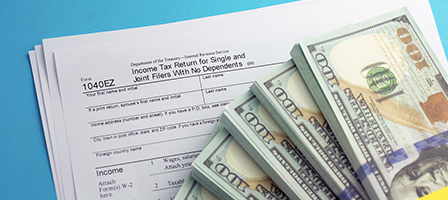The IRS is Resuming Collection & Enforcement Activities That Were Paused During COVID-19
 Article Highlights:
Article Highlights: - IRS Resuming Collection & Enforcement Activities
- IRS Has Started Contacting Taxpayers Who Have Not Responded to Prior Notices.
- Taxpayers Not Responding Could be Subject to Liens and Levies
- Beginning on July 15, 2021, the IRS will Start to Levy Taxpayer Assets
On June 15, 2021, this process kicked off as the IRS started contacting taxpayers who have not responded to prior balance due notices.
Since April 2020, the IRS halted its systemic and automated lien and levy programs for pandemic relief, but the agency is now planning to continue its normal collection casework processes.
Balance due notices, levies, and liens
Typically, balance due notices are sent automatically following the tax filing deadline if the IRS believes the taxpayer has a tax bill.
Starting June 15, 2021, the IRS started sending follow-up letters to those taxpayers who haven’t responded to prior notices. The notification will state that they have 30 days (45 days if out of the country) to respond or pay their tax bills.
If a taxpayer fails to respond to these additional letters, they “could be subject to levies or Notice of Federal Tax Lien filings beginning August 15, 2021.”
Levies (in coordination with other state and federal agencies)
Beginning on July 15, 2021, the IRS will start to levy taxpayer assets through these programs:
- Federal Payment Levy Program (FPLP, “whereby the IRS can collect a taxpayer's overdue taxes through a continuous levy on certain federal payments disbursed by Bureau of Fiscal Services”);
- State Income Tax Levy Program (SITLP, “whereby the IRS can levy a taxpayer's state tax refund”); and
- Municipal Tax Levy Program (MTLP, “whereby the IRS can levy a taxpayer's city/municipal tax refund”).
|
|  |





